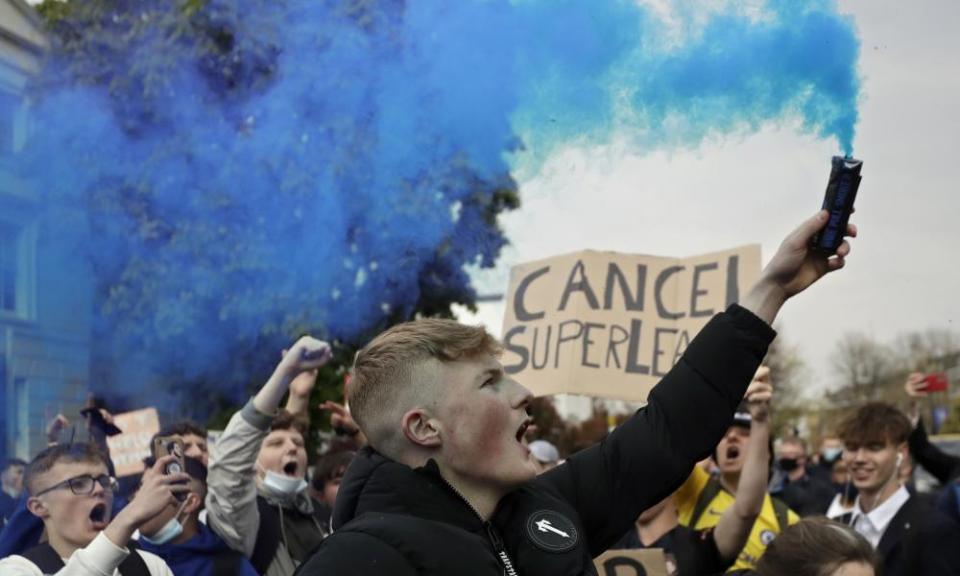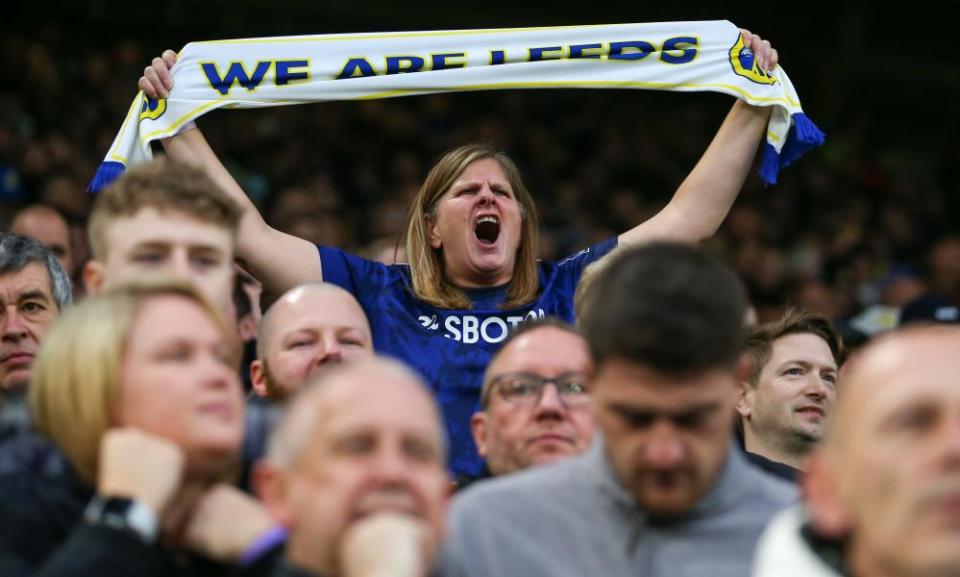For the good of football, we should have let the European Super League happen

The changing of a year is a time to reflect, to both remember moments that have passed and imagine how they might have happened differently. These considerations are likely to be personal: should I really have let my hair grow long? What if I had not forced the hire car into the narrow parking space next to the concrete pillar? They can also be grander too and one thought that has returned frequently over the course of the past week is of the latter type. It runs as follows: did we miss a trick by not letting the European Super League happen?
By we I mean the source of the amorphous people power credited with bringing the 12-club breakaway competition to a halt. I also mean specifically the English contingent of that protest because the dynamics at work in Spain and Italy are different. Finally I mean the part of that group described as the ‘legacy fan’, those who watch their team in a stadium and who support them in a kind of unconditional fashion, as if we were almost part of it ourselves.
Related: 2021 was the year when football’s silent majority finally found its voice | Jonathan Liew
The legacy fan is probably a term most legacy fans would rather not have used about them but it’s here and it means something, so it’s worth using. It’s certainly distinct from the generic ‘fan’, which is used a lot but means a number of different things to different people.
The Super League was apparently stopped by the fans. But it was also stopped for the fans because, in the words of the Premier League, it would damage the concept of “an open pyramid, progression through sporting merit and the highest standards of sporting integrity”. Yet most legacy fans will likely be scratching their heads to locate clear examples of each of these phenomena.
An open pyramid? The top of the Premier League is choked off by the Super League clubs, the top of the Championship by those who fell out of the top flight and got to spend parachute payments, while the top of League One features several clubs who did all that and still nearly went bust. Most fans outside that group feels boxed in, increasingly frustrated and likely desperate for a billionaire of dubious means to land their helicopter in the club car park. Sporting merit, sure, if you mean spending power in the transfer market. And sporting integrity, well, not only is it an issue pertinent to the debate over a Covid-disrupted schedule but it is inherent in most of the regular sources of debate – from VAR to simulation to tactical fouling to, once again, the disparity in resources available to clubs in the same division.
So let’s say that stopping the breakaway does not mean everything is fine. Could allowing it have made it better? To conduct this thought experiment I must introduce one condition: that when the big six left for the Super League, they left English football altogether. The real plan had it so that there was Super League midweek and Premier League at the weekends (for a bit at least). But in this version, that’s a no. They go. They take their money, their global recruitment networks and their in-house content production teams with them. They pay a one-off exit fee and can concentrate on six-week road trips to China for quadruple headers against Beijing Guoan (oh, yes, one other condition is that the European Super League becomes the Global Super League).
Left behind are largely ruins. The Premier League uses the exit money to stave off furious broadcasters, but contemplates a future shorn of global eyeballs. The Championship sees its own exodus, of speculative owners no longer keen on ramming clubs up that open pyramid. Ryan Reynolds cancels his Airbnb in Wrexham. After raging about the betrayal of the big six for a fortnight, radio stations suddenly come to the conclusion that the GSL is, actually, quite an intriguing prospect. Twitter continues to be a squall of egoistic tantrums, but that is what it is there for.
Amid the chaos, however, things are suddenly possible that never were before. Sustainability, with limits on owner investment and wage caps at a percentage of clubs’ turnover. With TV interest diminished, public broadcasters can suddenly afford to show games again, but not that many because they have a Stephen Graham drama to squeeze in too. Clubs can no longer afford substantial transfer fees and turn towards developing their own talent. They must also nurture relationships with the one reliable source of income they have: the good old legacy fan.

Not that it would all be manna and ambrosia. Some legacy fans, those of the Super six clubs, who have been ignored and traduced as much as any other, would have to follow their teams to the GSL. Those who remained, the virtuous souls who travel through rain and disrupted railway services to support their team, would also have a dirty secret: they’d enjoy watching the GSL too. Like the Premier League before it, the GSL would offer entertainment comparable to anything on earth. It’s simply that to save the sport, and to maximise the entertainment, the two had to be separated. That separation had once seemed illogical, never mind impossible, but once it had happened it made sense. Now it was all right, everything was all right, the struggle had finished. The legacy fan had won the victory over themselves.

 Yahoo Sport
Yahoo Sport 





































